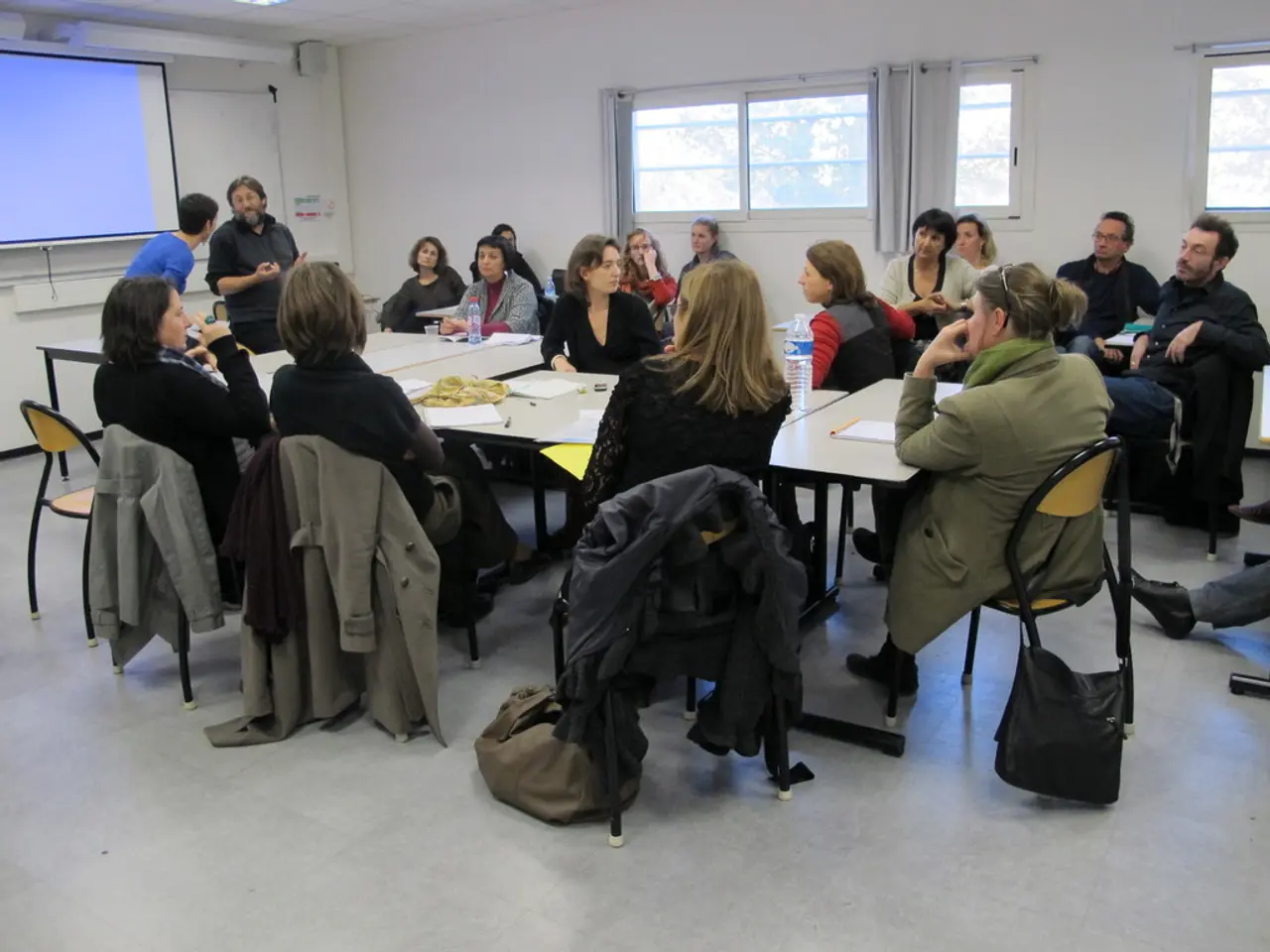Performance Influence: Description, Illustrations, and Effect on Achievement
In the realm of social psychology, a fascinating phenomenon known as social facilitation has been gaining attention. This concept refers to the powerful impact that social environments have on an individual's behaviour and performance [1]. However, it's essential to understand that this influence is not consistent across all tasks.
When individuals engage in simple, routine, or well-learned tasks—think of activities such as running, typing, or letter cancellation—the presence of others typically leads to enhanced performance [1]. This boost can be attributed to heightened arousal, which energizes dominant, well-practiced responses. For instance, classic experiments have shown that people produce more words in free association tests and complete letter cancellation exercises faster when working in the presence of others, even without interaction [1]. The increased quantity of output is a telltale sign of social facilitation in such scenarios.
However, it's crucial to note that while the quantity might increase, the quality can sometimes decrease. This suggests that the presence of others may lead to more automatic, less thoughtful responses in well-learned tasks [1].
On the flip side, for complex, novel, or unfamiliar tasks, the presence of others often impairs performance. Heightened arousal in these situations can interfere with the cognitive processes needed to solve problems or learn new skills, leading to mistakes, slower performance, or reduced accuracy. This negative effect is sometimes referred to as social inhibition.
These findings have real-world implications. In sports, athletes often perform better in familiar, well-practiced drills when others are watching (social facilitation). However, learning a complex new play or technique in front of an audience may lead to poorer performance. The same goes for the workplace, where employees may complete routine paperwork more quickly in an open office (social facilitation), but brainstorming or solving novel problems might suffer due to distraction or anxiety. In education, students may answer simple questions more readily in class but struggle with complex concepts when put on the spot.
Key takeaways include: - Easy, well-learned tasks: The presence of others usually boosts performance (social facilitation). - Difficult, unfamiliar tasks: The presence of others often hinders performance (social inhibition). - Real-life impact: The effect depends on task complexity and the individual’s skill level; facilitation is most likely when the task is simple and well-practiced, while inhibition is more likely with complex, novel tasks [1].
In essence, understanding social facilitation can lead to better outcomes in education, sports, and workplace settings. By recognising audience presence and managing anxiety for complex tasks where social presence may hinder performance, individuals can optimise their performance. Practicing tasks thoroughly can also help improve performance under social facilitation. Whether it's a public speech, a sports competition, or a classroom setting, leveraging knowledge of social facilitation can make all the difference.
References: [1] Zajonc, R. B. (1965). Social facilitation: An experimental approach. McGraw-Hill Book Company.
Engaging in education and self-development activities such as learning, and striving for personal growth requires a conducive environment, as the impact of such tasks on performance can differ significantly. While individuals may exhibit enhanced performance in well-learned, simple tasks such as running or typing in the presence of others due to social facilitation, complex and unfamiliar tasks may be negatively impacted, a phenomenon known as social inhibition. Thus, understanding when to harness social facilitation and when to minimize its distraction may be crucial for optimal performance in education, sports, and the workplace.




